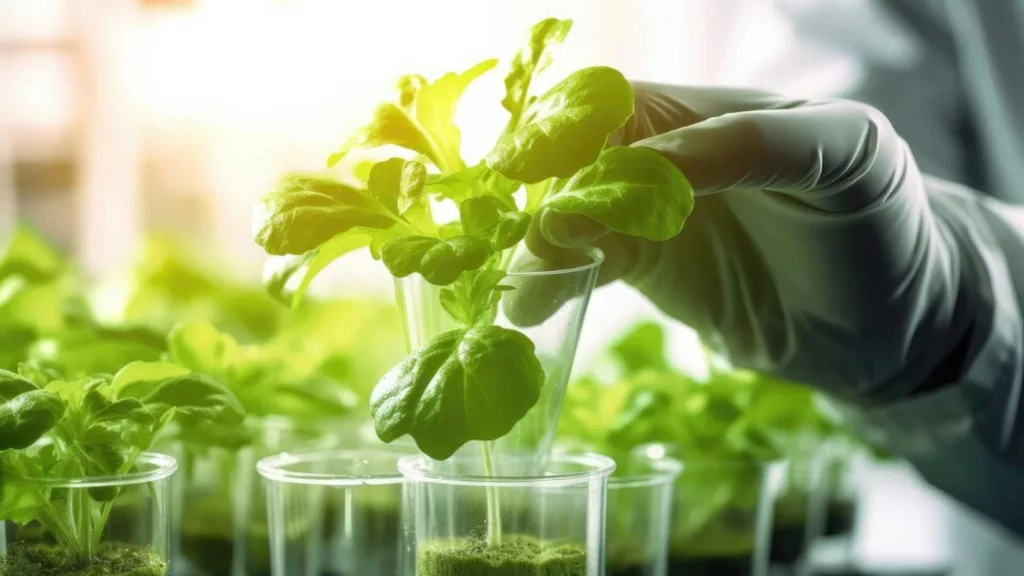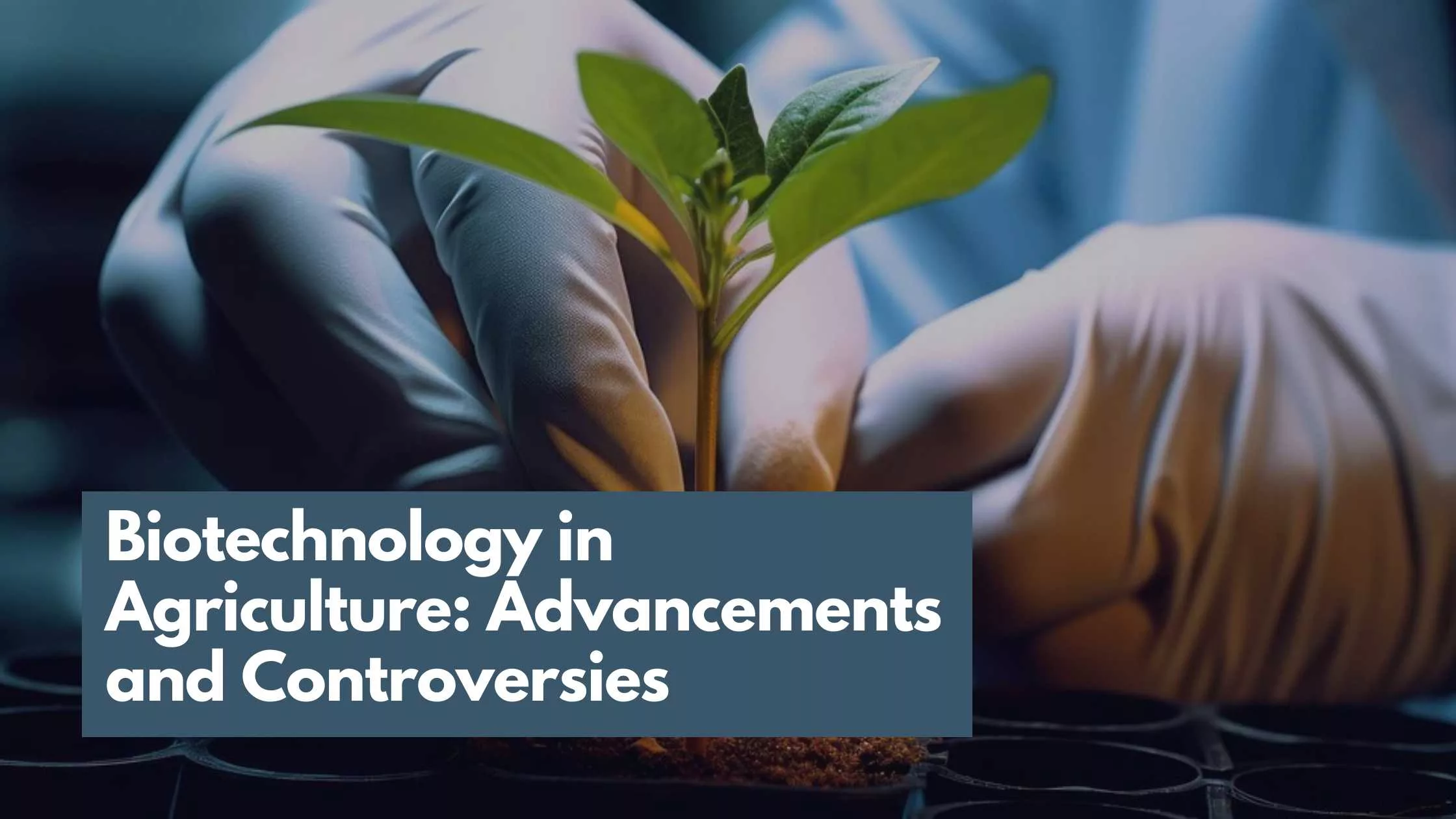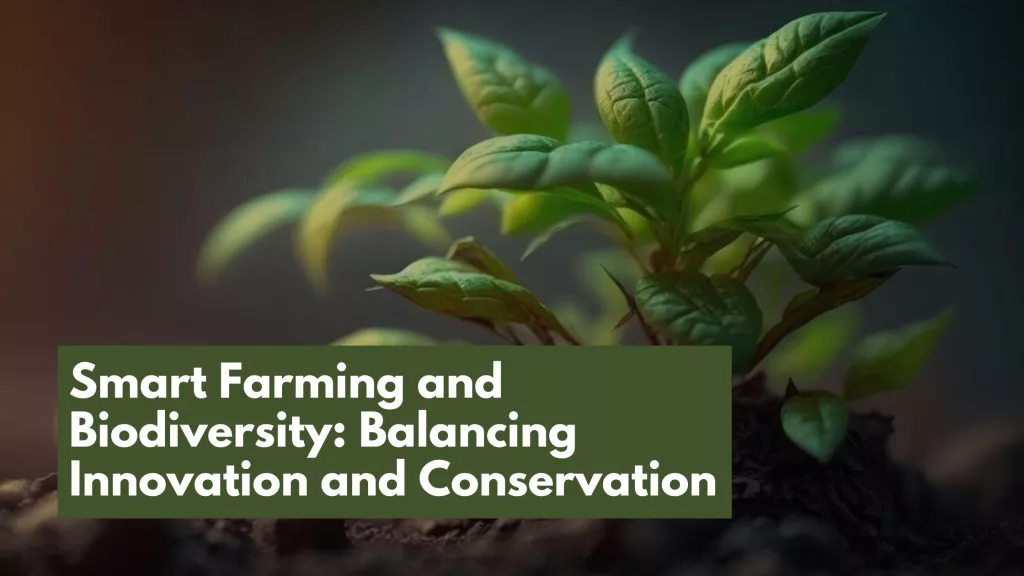Introduction
Biotechnology in agriculture has brought a revolution to the field in recent decades. Agriculture has witnessed immense advancements through the application of biotechnology. It explores the possibilities and potential solutions to enhance the productivity and quality of the crops. Along with improving food quality, it also contributes to addressing environmental challenges.
However, these advancements have also highlighted some controversies concerning the use of GMOs in agriculture. These issues, such as the potential risks of Genetically modified organisms (GMOs) to the health of humans and the environmental challenges associated with them,
This article will explore the benefits and controversies of using biotechnology in agriculture. The blog will highlight the potential benefits and clarify the concerns critics raise.

What is biotechnology in agriculture?
Agriculture biotechnology uses scientific methods and equipment to increase crop productivity, boost food quality, and solve other agricultural problems. It includes creating genetically modified crops with desired features, such as insect resistance, drought tolerance, and higher nutritional value, utilizing genetic engineering, marker-assisted breeding, and other biotechnological techniques.
Precision agriculture, the creation of functional foods, and environmentally friendly agricultural methods are all impacted by biotechnology. By increasing agricultural yield, minimizing environmental effects, and assuring food security in the face of mounting global difficulties, it has the potential to revolutionize agriculture.
Advancements in Biotechnology in Agriculture

Genetic Modification and Crop Improvement:
Genetic Modification is one of the main applications of biotechnology in agriculture. Genetic Modification includes modifying an organism’s genetic makeup to add desired features or qualities. Crops undergoing genetic Modification may exhibit higher nutritional value, insect resistance, and drought tolerance. GMOs, often known as genetically modified crops, have been broadly embraced in several nations due to this. The usage of pesticides has been reduced, agricultural yields have increased, and the nutritional value of food has improved thanks to the introduction of GMOs.
Marker-assisted breeding:
This is another prominent advancement in agriculture. Using traditional plant breeding methods for the breeding process is way too time-consuming. They are time-consuming because they rely on crossing and selecting plants with desired traits over multiple generations. However, marker-assisted breeding identifies specific genes or traits of interest in plants through molecular markers. This technology has enhanced the breeding process by facilitating its speed and by selecting plants with desired traits in an optimized way. Marker-assisted breeding is specifically significant for enhancing crops with improved disease resistance, yield potential, and quality of crops.
Precision Agriculture:
Biotechnology has significantly contributed to the development of techniques for precision agriculture. It includes the technologies to monitor the fields’ soil, yield, and water conditions. Sensors, drones, and satellite imageries collect data about the soil, yield, and pest conditions to make informed decisions about applying fertilizers, pesticides, and water. Precision agriculture improves productivity and yields by optimizing resource usage and minimizing waste. Moreover, it reduces the environmental impacts. Biotechnology has contributed vitally in providing the tools and technologies to facilitate precision agriculture practices effectively.
Functional foods and Nutraceuticals:
These products consist of nutrition beyond essential nutrition, providing ample health benefits. Biotechnology has helped in the development of functional foods and nutraceuticals. Scientists have enhanced the nutritional value of crops through genetic Modification. Biofortified crops have improved levels of nutrition and essential vitamins and minerals. These crops are sufficient to address nutrient deficiencies in the population that relies heavily on staple crops to a greater extent.
Additionally, biotechnology has enhanced the production of healthy properties of crops such as fruits with increased levels of antioxidants and other crops with therapeutic compounds.
Controversies Surrounding Biotechnology in Agriculture
Safety concerns: The safety of GMOs is the most common concern about biotechnology in agriculture. Some problems are that genetically modified crops have adverse health effects on consumption by animals or humans. Despite much research, the debate on the long-term impact of GMOs on human health still needs to be disputable. Global regulatory organizations have put in place strict methods for evaluating the safety of GMOs, yet popular perceptions and worries remain.
Environmental impacts:
Critics have also alarmed concerns about the potential impact of biotechnology on the environment. They claim that genetically modified crops can lead to biodiversity loss in the future. The dominance of a few genetically modified crops can also reduce exposure to various traditional crops. There is also a concern about gene flow from genetically modified crops to wild relatives, as there is a high chance of developing herbicide-resistant weeds. These factors can lead to unexpected ecological results and disrupt natural ecosystems.
Socioeconomic issues:
Yet another debate about socioeconomic matters surrounds biotechnology in agriculture. According to critics, the introduction of genetically modified crops might result in more reliance on a small number of seed firms, restricting farmers’ options and escalating inequality in the agriculture industry. Concerns exist over managing the seed supply and intellectual property rights, which may disadvantage small-scale farmers and influence conventional agricultural methods.
Labelling and Consumer Choice:
In many nations, labelling genetically engineered items has been a disputable topic. Critics contend that customers have a right to know if the goods they buy contain genetically engineered elements. They argue that clear labelling enables consumers to make educated decisions about their food. However, proponents of biotechnology contend that since GMOs have undergone thorough safety evaluations and are approved for ingestion by regulatory agencies, mandated labelling may cause unwarranted stigmatization and anxiety.
Conclusion
Without question, biotechnology has significantly advanced agriculture, bringing potential answers to problems with food security, the environment, and nutritional deficiency. The debates about biotechnology in agriculture should not be ignored, though. Addressing safety issues, assessing potential environmental effects, and ensuring fair access to the advantages of biotechnology are essential.
A balanced strategy that includes scientific research, open communication, and regulatory monitoring is required to handle the complexity and difficulties related to biotechnology in agriculture. By doing this, we can address valid concerns, fully utilize the promise of biotechnology, and advance sustainable and ethical farming practices.




I don’t think the title of your article matches the content lol. Just kidding, mainly because I had some doubts after reading the article.
Yes ask me your doubts I am here to help.